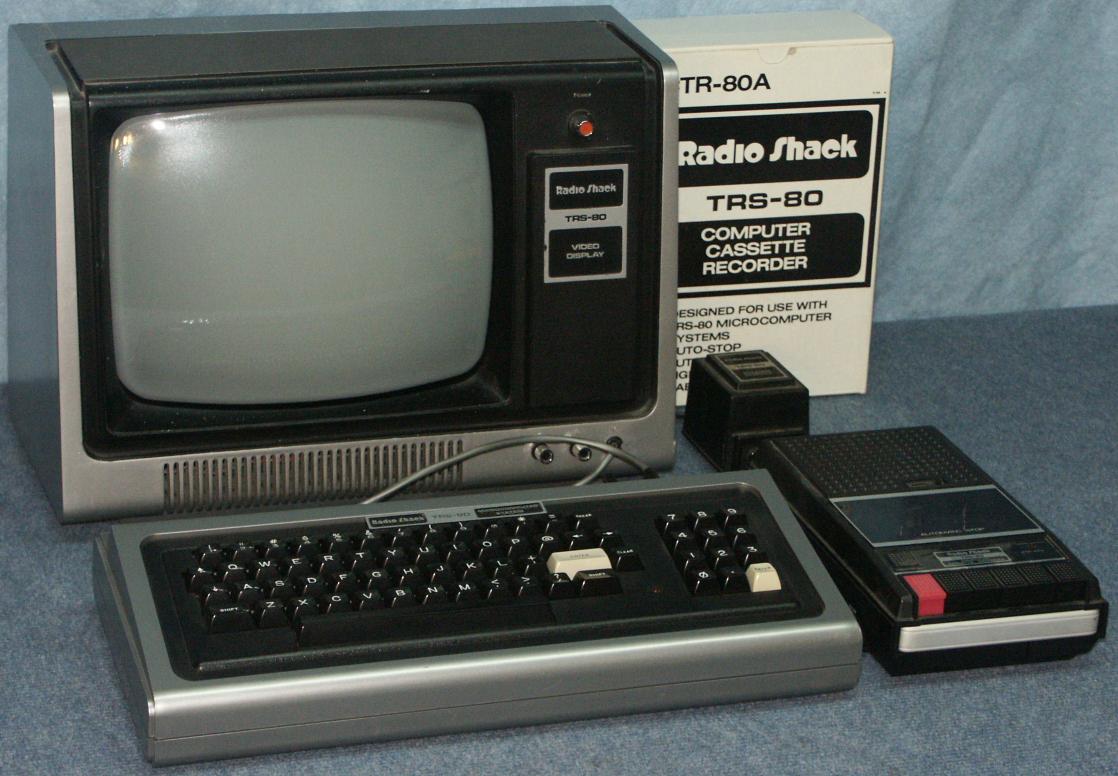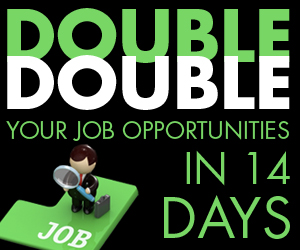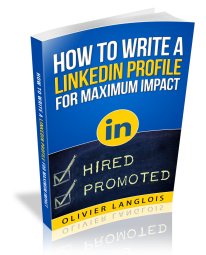How a TRS-80 can help you dominate interviews!
Have you ever felt like you couldn't pass an interview even if your life depended on it? Maybe you even feel an immense pressure to always know the right answer to every technical question thrown at you that simply paralyze your capacity to even find answers to simple question.
Let me reassure you, if you ever felt like that, it is not your fault because you have never been told that 100% technical accurary was not the absolute goal to achieve in order to dominate your interview.

I have been on the other side of the table long enough to understand something crucial about technical interviews. I have seen a collegue using the same bad technical question for years over and over where the question is so bad that it is simply impossible to give a good answer. Yet that collegue was regurlarly recommanding candidates for hire. So if giving good answers was not the key to pass the interview with that guy, what was it?
Charm him!
He needs to like the candidate. Of course, he needs to feel that the candidate will be able to do the job but the most important criteria, he must have liked him. Here is a small sneak peek on how the recruiting process looks like in big corporations like Morgan Stanley or Google. Once you have passed the phone screening interview and you are invited for an in-site job interview, you are going to be interviewed by 5-10 different persons. Once you go back home, the interviewers are going to meet and debrief on how well the candidate has performed. They are going "score" the candidate based on an evaluation grid that tries to make the whole exercise as objective as possible but in reality it is not. It is totally subjective. My own vision of the whole thing is that it is pretty much a popularity contest. If a majority of the interviewers did like you, bingo, you have the job!
1. How to be liked by an interviewer?
In Dr. Robert B. Cialdini book titled 'Influence', there is a whole chapter about liking influence principle. Very quickly, the elements that can make someone to be liked from the book are:
- physical attractiveness
- similarity
- compliments
- cooperate
- familiarity
Physical attractiveness seems to engender what the scientists call a halo effect that extends to favorable impressions of other traits such as talent and intelligence. Since teaching how to become attractive is not my department, I'll stop here concerning the physical attractiveness.
For complimenting, you could ask questions about the interviewer, find out what he likes, what is his realisation in the company that he is the proudest of. Listen then compliment him on that. I recommand Dale Carnegie's classic book if you want to learn how to do that efficiently.
Concerning creating a similarity feeling, let me share a personal story. I did study electrical engineering at a university offering a cooperative program where you had to spend 3 semesters in the industry. I got an interview right after my first semester in 1996. On paper, I was not by far the best candidate. I have a very regular GPA. No programming classes yet. No software developement experience neither. The interview did not start very well. I was feeling like sinking on my chair while I was doing my best to answer the interviewer questions. I had not much going on for me until my interviewer ask me this question:
Why do you want to do software developement?

Then I went to explain that at 6 years old, one day, I went back at home for lunch and I saw my father pluging a funny looking box on the TV. I asked him what that funny looking box was and he told me it was a computer. A Radio Shack TRS-80 or more commonly known as a Coco 2. I have immediatly been fascinated by that. To put younger readers in context, when I went back to school for the afternoon and I was telling everyone that we got a computer, in 1981, no one had a clue what a computer was.
As I was telling my story, I saw the eyes of my interviewer getting wide open and he has shared with me that this computer was his first personal computer that he got and he had a very fond memory of the experience. As he told me that, I just milked the topic as much as I could. Like talking about the funny storage system using a tape cassette recorder where you had to position the tape at the beginning of a program by listening the audio and find the small silence period separating two programs. Or the funny experience of typing in a BASIC program and reaching a point where you could not finish typing the program because you have already filled in the huge 16KB of RAM that the machine had. You had to go through the listing to remove spaces here and there to be able to complete writing the program.
Essentially, we just spoke about the TRS-80, for the most part of the interview. At the end, we haven't seen the time passed, I think that we did even pursue the interview few minutes into the next student alloted slot time for his interview. When I left, the interviewer took my hand and put another hand on my shoulder, looked at me in the eyes and told me:
'You will see that after a semester with us, the way you do software developement will be changed forever'
As I did quit the interview room, I did a small grin to the next student who have witnessed the scene. I have wished him good luck but I could see the terror in his eyes like it was pretty much obvious that it was game over for him...
By the way, what the interviewer told me, it did turn out to be absolutly true. This story is really a very important turning point in my career...
2. Be assertive and reply with certainty, Be confident about your skills
The more knowledgable you are and the more you can demonstrate it, the better...up to a certain point. In my opinion, you do not need to be the absolute best candidate to give a maximum impact presentation. The way you deliver your answers are probably more important.
Unless you are a good actor, I am not suggesting that you consciously attempt to project those signals. These are signals that will naturally be projected when someone feel confident in his skills for the job he is interviewed. There are several ways that someone can gain this confidence. If you have just graduated, practice at home, gain experience. Unfortunately, this might not be possible to apply that for all professions such as a dentist but for software developement, you can have pet projects, put them on github and possibly learn how to lead if the project attracts contributors. Lack of experience may be compensated by the energy, the passion and the enthousiasm that you display when you talk about your field. A hiring manager will like that and see the potential in you.
If you have several years of experience, identify your best realisations in your career. find out what skill or trait has made you so successful and feel proud and good about these realisations. Make a list of these skills, experiences and acquired lessons and keep playback that list in your head and convince youself that you are among the best in those skills. Having that belief, you will project confidence in the interview and questions such as:
Tell me why I should hire you?
will be so easy to answer that it is going to be ridiculous. For me this list would look like:
- several years of experience in designing/debugging multithreaded system
- in depth knowledge of linux Kernel. I submitted few patches to the scheduler code and other subsystems (ALSA,network driver)
- Strong experience with high bandwidth TCP/IP usage
- Mastery of C/C++
I know that I am one of the best in my discipline. By being convinced of that myself, convincing someone else is much easier. Remember:
If you want to convince someone about your capabilities, you should be convinced yourself first.
3. Be relaxed
There is nothing else you can do to prepare yourself the day of the interview. You've been preparing for your whole life for that interview so just get the interview out of your mind the evening before the interview. Do anything to be relaxed. Depending what is your thing, you could do exercise or practicing a sport. Get yourself a massage, walking in a park, watch a movie or chill out with some friends.
Finally, knowing that interview offers are piling in your mailbox as you go to one interview can remove a lot of pressure from your shoulders. My free book shows you how to achieve this by using LinkedIn like a pro and be successful with LinkedIn. If you are interested in learning about that topic, I am offering advices to improve your LinkedIn profile that will teach you how to write a LinkedIn profile the right way.


